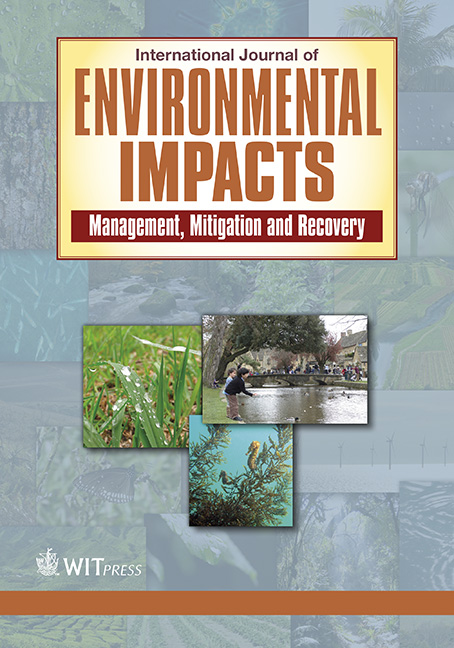The evolution of flora in the island of S. Tomé – The social, economic and environmental impacts of colonisation
Price
Free (open access)
Volume
Volume 3 (2020), Issue 3
Pages
11
Page Range
207 - 218
Paper DOI
10.2495/EI-V3-N3-207-218
Copyright
WIT Press
Author(s)
Isabel Maria Madaleno
Abstract
The Island of S. Tomé, located in the Gulf of Guinea, is part of one of the smallest countries on Earth, registering only 163,784 residents. It is also a very biodiverse equatorial environment, discovered by the Portuguese, in 1470. Exuberant native vegetation covers most of the island, even though it has suffered logging in order to give way to sugar plantations between 1494 and 1610, as well as coffee and cocoa plantations from 1780 onwards. Current submission stems from research conducted in the now independent country, in 2019, by the University of Lisbon. The objective was to find out if the depredation suffered in colonial times had any significant impacts on the environment, on food security and on the wellbeing of the Gulf of Guinea islanders. Methodology was three-fold: (1) examination of old manu- scripts and recent literature about the history of plantations, so as to enumerate the plant species existent in the beginning of colonisation and the ones introduced during colonisation; (2) survey to fifty urban residents, in modern times, so as to evaluate the economic and environmental impacts of Portuguese presence and economic management; (3) identification of flora. The in-depth interviews aimed four focus groups: (i) fruit, roots, staples, spices, and medicinal plant traders, found in markets and along the streets (74%); (ii) urban and peri-urban farmers that cultivated food plants, spices and medicinal flora (20%); (iii) traditional healers also involved in flora cultivation (4%); (iv) one touristic guide that traded medicines grown and processed in a botanical Garden, located further inland (2%). The survey accounted for 111 botanical species, some of which were native. The hope is to contribute for a better understanding of the evolution of flora consumption in Africa, and to explain why there was no serious depredation in this Gulf of Guinea Equatorial environment.
Keywords
Environment; Equatorial; S. Tomé; Nutrition; Medicines; Flora; Africa




